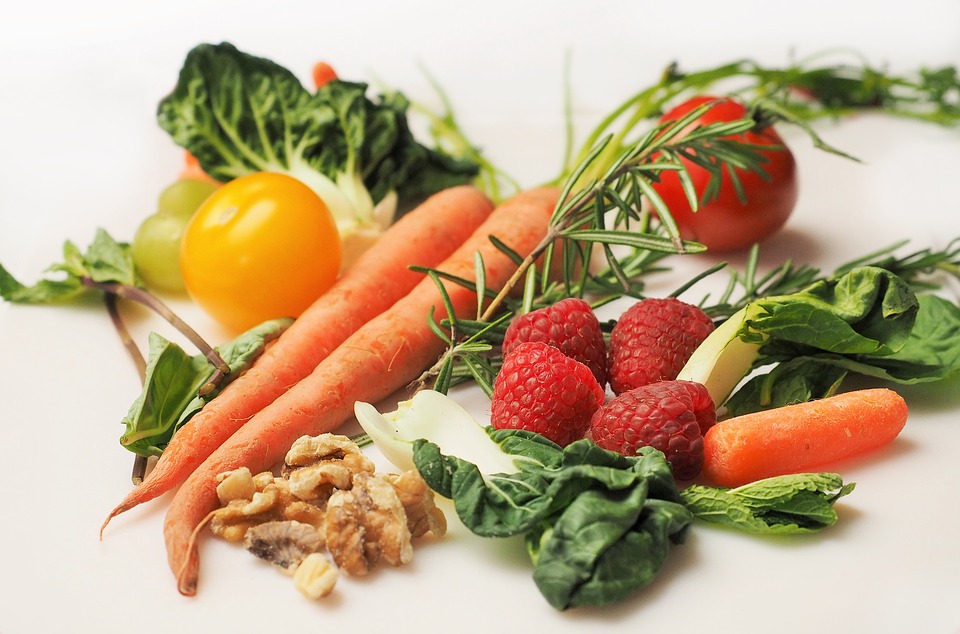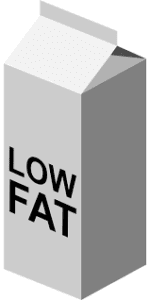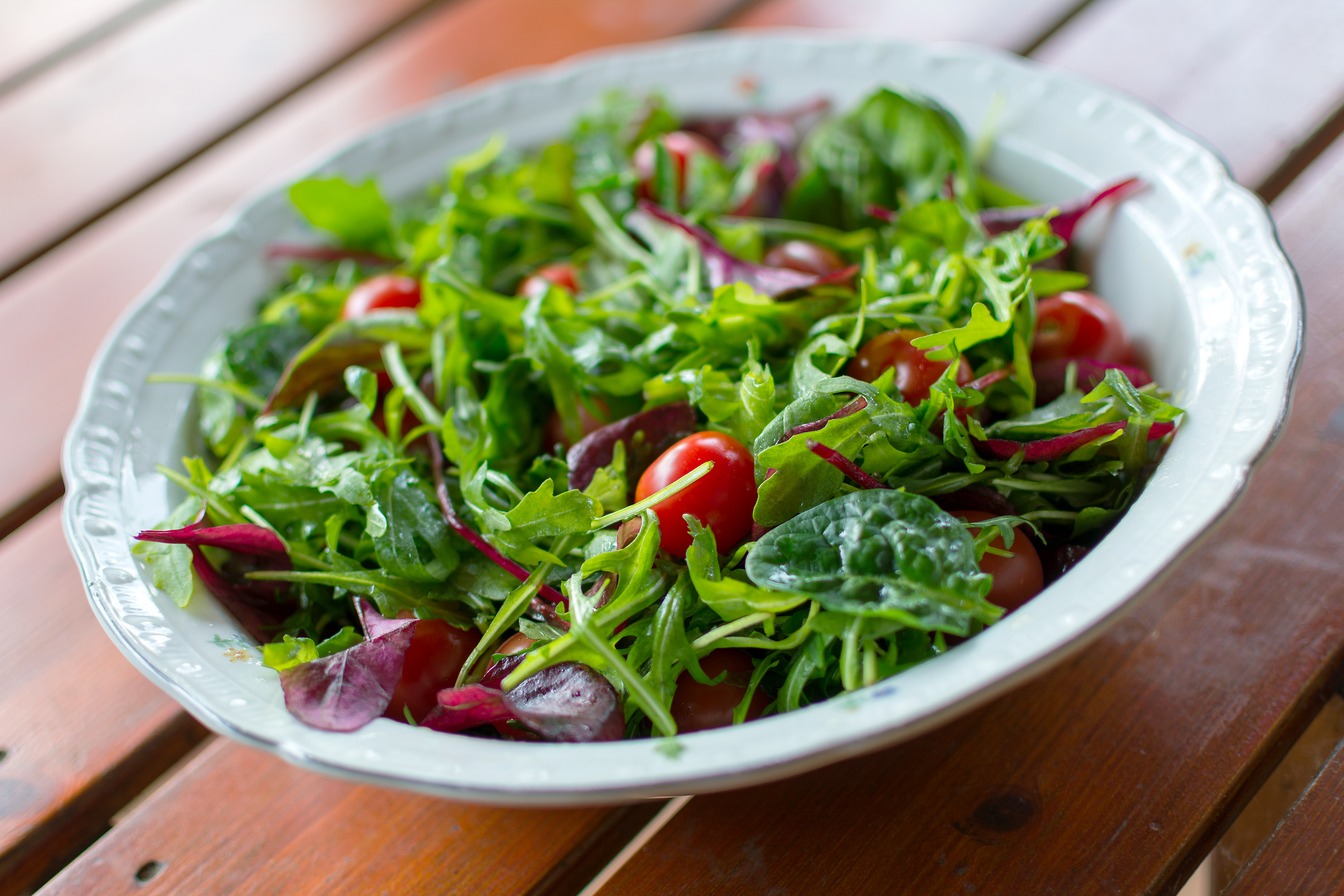
We received a follow up question on our “Top 5 Supplements Everyone Should Consider” post about how to follow an “anti-inflammatory” diet. The inquiry, from a Harvest Market fan named Patrica, is simply:
“What to eat and what not to eat?” Now THAT is the question!
Harvest Market’s Wellness Manager, Henry, did his best to answer this important question, and here are the results…
Check in with your body. How does it feel? How do you feel? It is always a good starting point to ask the body what it wants. Surprisingly, the body often answers that question with cravings. We sometimes crave certain foods which contain the nutrients we are lacking or need in larger amounts for conditioning and self-repair.
 Sometimes, (especially in a culture so obsessed with Low Fat diets as ours has been over the last 50 or so years) all we’re really craving (and why we’re so hungry all the time) is saturated fats. But not all saturated fats are the same. I’m talking about good saturated fats, like organic extra virgin olive oil, coconut oil, avocados, nuts and seeds. Also, full fat yogurts, raw cheeses, butter, eggs, and animal fats from animals on pasture.
Sometimes, (especially in a culture so obsessed with Low Fat diets as ours has been over the last 50 or so years) all we’re really craving (and why we’re so hungry all the time) is saturated fats. But not all saturated fats are the same. I’m talking about good saturated fats, like organic extra virgin olive oil, coconut oil, avocados, nuts and seeds. Also, full fat yogurts, raw cheeses, butter, eggs, and animal fats from animals on pasture.
I truly believe the “Low-Fat Mythology” adopted by our society (see 0% fat skim milk given daily to our children in our schools!) has caused as much harm in the long run as any of the toxic environmental factors we hear so much about. Combine that misinformed craze with the commonplace and uniquely American diets of high-sugar, refined simple carbs, and highly processed packaged foods, and you have a real recipe for dis-ease, both physical and mental.
Pro-Inflammatory Foods to Avoid:
- Sugar (One of the main offenders for inflammation)
- Trans fats (Think “F” foods: Fast, Fried, French Fries, Frankenstein Foods, i.e. GMO’s)
- Over-consumption of Omega-6 (From cheap vegetable oils and salad dressings)
- Refined Carbohydrates (Breads, Pastas, Cereals, all the white stuff, like white flour, white rice, white potatoes, etc.)
- Sodium/MSG (Go for a mineral rich Sea Salt or Himalayan instead)
- Soda Pop (Just no. Don’t do it.)
- Alcohol. Alcohol is a real burden on the liver. Excessive use weakens its function, and is read by the body as a sugar. The risk of other kinds of disease goes up with higher alcohol consumption as well as the inflammatory response. If you do drink alcohol, choose your beverage wisely and remember to drink in moderation.
 And now a word about cortisol levels:
And now a word about cortisol levels:
- High cortisol levels. (See: STRESS!!!) Cortisol is the steroid hormone produced by the adrenal glands which are perched atop each kidney. During periods of high stress or anxiety, or when we perceive danger, the old flight or fight mechanisms built into our biology kick in. We are either going to run like hell away from this bear, or we’re going to turn and fight. The good news is that this works well when fleeing a bear. (Well, maybe not with a bear, unless you have a really big stick.) The bad news is that in the absence of bears, these hormones are released in response to all kinds of daily stimuli, like watching the news, violent video games, driving in bad traffic, feeling threatened by aggressive people or situations, and so on. This causes a chain of inflammatory reactions in the body and mind, and can lead to high blood pressure, Type 2 diabetes, osteoporosis, weight gain, lethargy, sleep issues, depression, brain fog, and much, much more.
Work at reducing your cortisol levels by managing your stress. Get enough sleep. Try mindfulness techniques, a little exercise, (but don’t over-due it), walks in nature, being with those you love, playing, relaxing, mediation, counseling, etc. Check in with your body to recognize when you are feeling stressed. How is your breathing? What’s your heart-rate? Are you hungry or thirsty? Are you “Hangry?” Also check in with your spiritual self. You don’t have to be religious, but it helps to acknowledge the Universe every now and then, and to allow yourself to simply be in awe. Of everything. That awe IS a spiritual experience!

Anti-Inflammatory Foods to Include:
- Fruits in moderation (Remember, fruits are still a sugar. Go with blueberries, raspberries, cherries, strawberries, maybe the occasional orange. etc.)
- Vegetables-a-plenty (Like kale, collards, spinach, broccoli, and brussels sprouts)
- Avocados and Salads (With organic extra virgin olive oil dressing or a little red wine vinegar or both. A salad with a little protein for 1 daily meal is a good starting point)
- Oily cold-water wild-caught fish (Like salmon, herring, cod, tuna, mackerel, anchovies and sardines)
- Nuts and seeds in moderation (Almonds, walnuts, macadamia nuts)
- Pastured meats and dairy in moderation
- Beans, legumes and whole grains in moderation
- Green Tea (Many of its benefits are due to its antioxidant and anti-inflammatory properties, particularly a substance referred to as EGCG, or epigallocatechin-3-gallate. EGCG inhibits the inflammatory response by reducing cytokine and other pro-inflammatory production as well as damage to the fatty acids in your cells.)
- Healthy fats (See above)
 It’s also worth noting to practice mindfulness in how we eat, not just what we eat. Are we relaxed, sitting with loved ones around a table? Are the phones and screens put away or turned off? Are the newspapers folded and waiting on the coffee table? Are we engaged with the sources of our nutrition, and know where our food is coming from? Are we thankful? These points play an important role in how we digest our food, and what it does once digested. You don’t want to eat while driving, or in a hurry, or slamming down a burger while doing a half dozen other tasks. Take time to be with your food. Acknowledge it, and one another. This too is practicing mindfulness, and it is anti-inflammatory in nature.
It’s also worth noting to practice mindfulness in how we eat, not just what we eat. Are we relaxed, sitting with loved ones around a table? Are the phones and screens put away or turned off? Are the newspapers folded and waiting on the coffee table? Are we engaged with the sources of our nutrition, and know where our food is coming from? Are we thankful? These points play an important role in how we digest our food, and what it does once digested. You don’t want to eat while driving, or in a hurry, or slamming down a burger while doing a half dozen other tasks. Take time to be with your food. Acknowledge it, and one another. This too is practicing mindfulness, and it is anti-inflammatory in nature.
Nearly all disease begins with inflammation. Even low levels of chronic inflammation can lead to illness. Eating a wide colorful variety of organic, anti-oxidant rich foods and following something along the above guidelines can help. And if you find yourself making these changes and still having inflammatory issues, well, that’s where the supplements come into play.
Good luck. And please let us know your thoughts!
